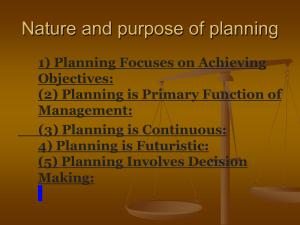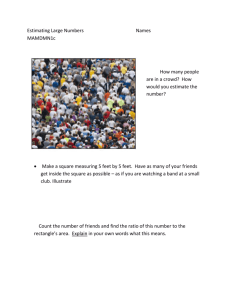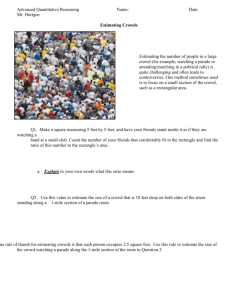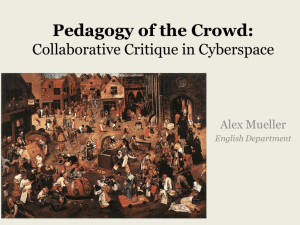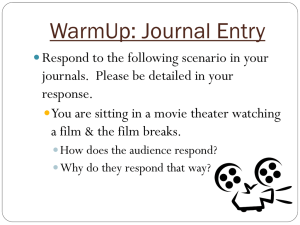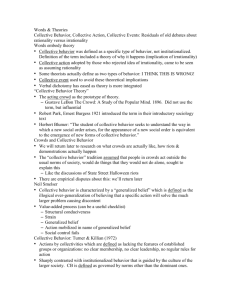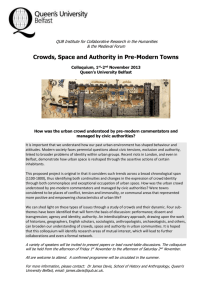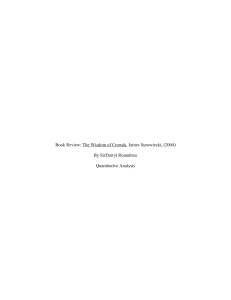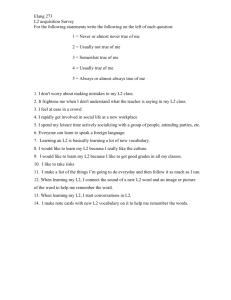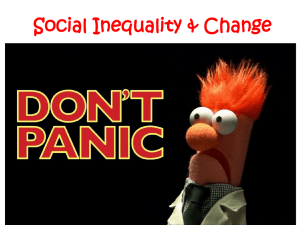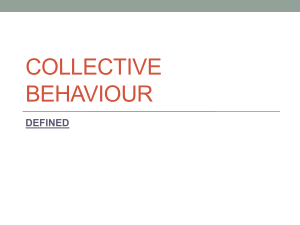Chapter 17
advertisement
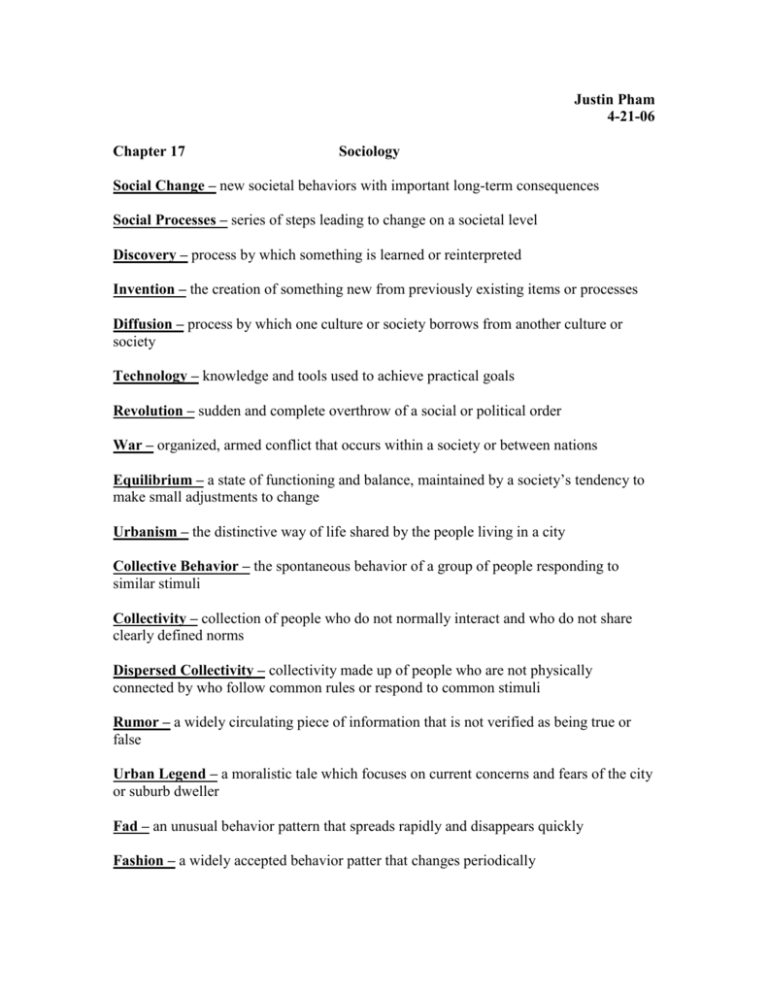
Justin Pham 4-21-06 Chapter 17 Sociology Social Change – new societal behaviors with important long-term consequences Social Processes – series of steps leading to change on a societal level Discovery – process by which something is learned or reinterpreted Invention – the creation of something new from previously existing items or processes Diffusion – process by which one culture or society borrows from another culture or society Technology – knowledge and tools used to achieve practical goals Revolution – sudden and complete overthrow of a social or political order War – organized, armed conflict that occurs within a society or between nations Equilibrium – a state of functioning and balance, maintained by a society’s tendency to make small adjustments to change Urbanism – the distinctive way of life shared by the people living in a city Collective Behavior – the spontaneous behavior of a group of people responding to similar stimuli Collectivity – collection of people who do not normally interact and who do not share clearly defined norms Dispersed Collectivity – collectivity made up of people who are not physically connected by who follow common rules or respond to common stimuli Rumor – a widely circulating piece of information that is not verified as being true or false Urban Legend – a moralistic tale which focuses on current concerns and fears of the city or suburb dweller Fad – an unusual behavior pattern that spreads rapidly and disappears quickly Fashion – a widely accepted behavior patter that changes periodically Mass Hysteria – collective anxiety created by the acceptance of one or more false beliefs Panic – reaction to a real threat in fearful, anxious, and often self-damaging ways Crowd – a temporary collection of people who share an immediate common interest Mob – emotional crowd ready to use violence for a specific purpose Riot – episode of largely random destruction and violence carried out by a crowd Contagion Theory – theory stating that members of crowds stimulate each other to higher and higher levels of emotion and irrational behavior Emergent Norm Theory – theory stating that norms develop to guide crowd behavior Convergence Theory – theory that states that crowds are formed by people who deliberately congregate with like-minded people Social Movement – movement whose goals is to promote or prevent social change; the most structured and rational form of collective behavior Revolutionary Movement – a social movement that attempts to change the total structure of society Reformative Movement – a social movement that attempts to make limited changes in society Redemptive Movement – a social movement in which seeks to change people completely Alternative Movement – a social movement that focuses on bringing about limited changes in people Value-Added Theory – theory holding that certain conditions must exist for social movements to occur Resource Mobilization Theory – theory of social movements that focuses on the use of resources to achieve goals Matching 1. J 2. K 3. D 4. H 5. C 6. F 7. E 8. G 9. B 10. I 11. A Multiple Choice 1. 2. 3. 4. 5. 6. C C C D A D
